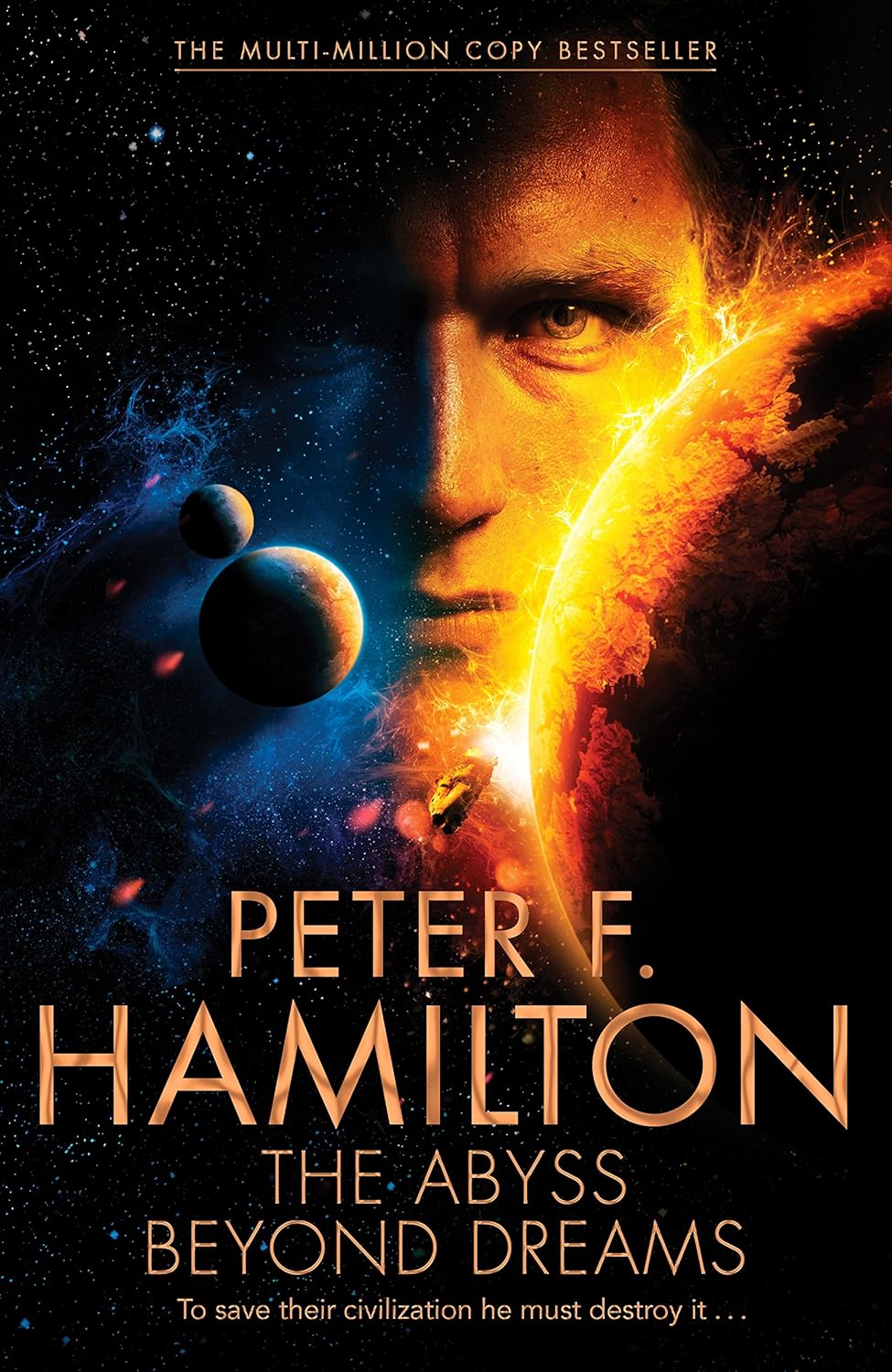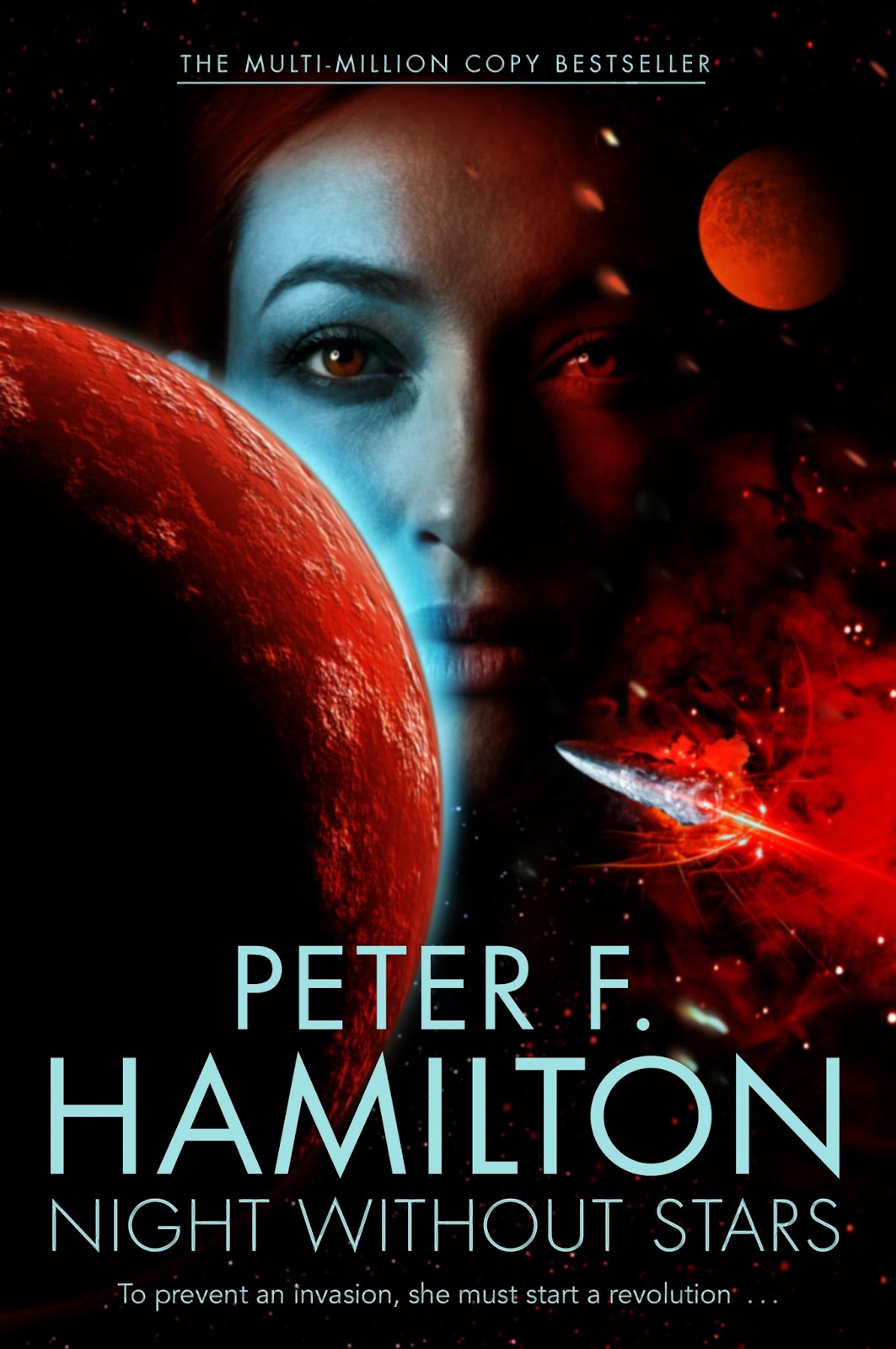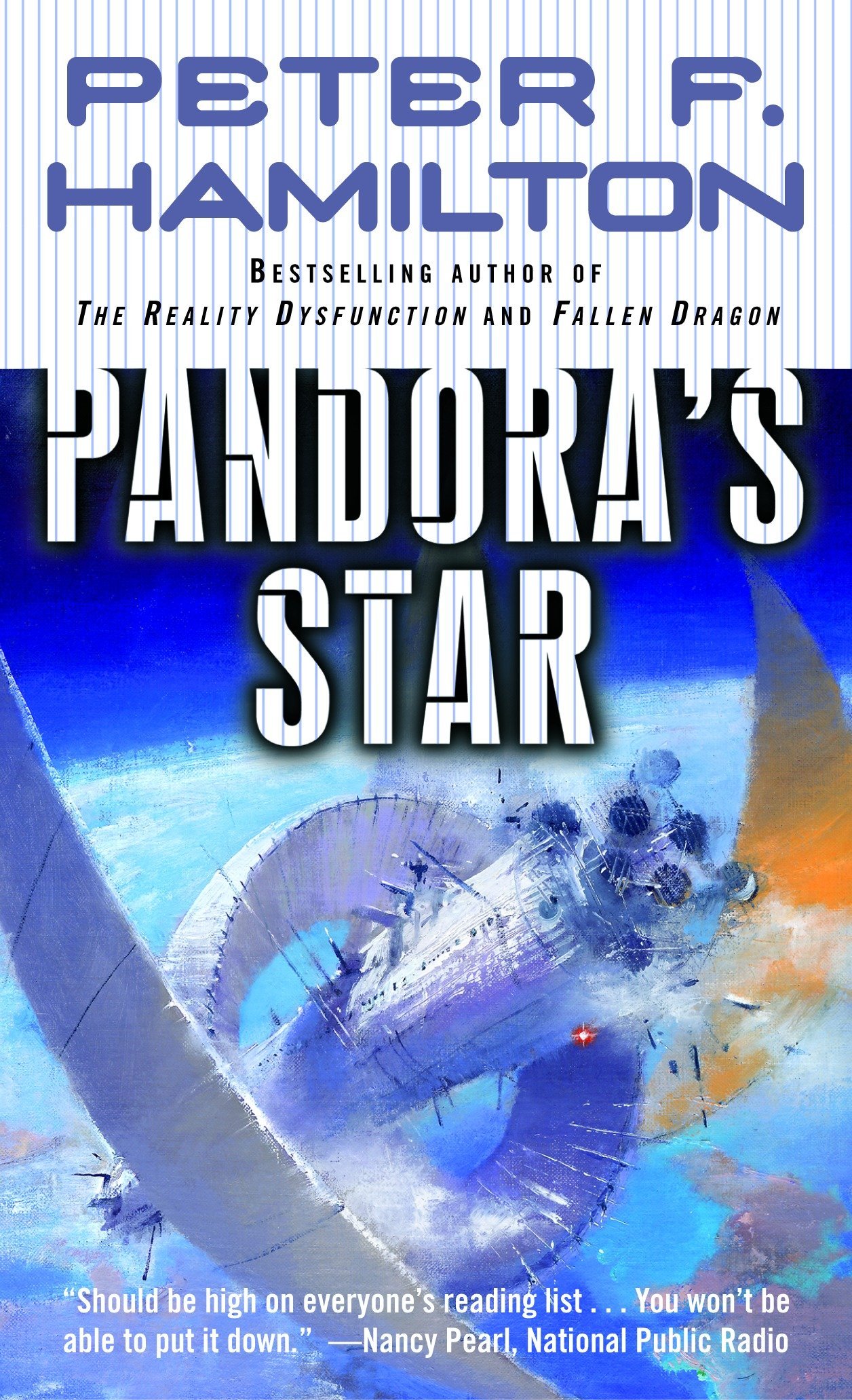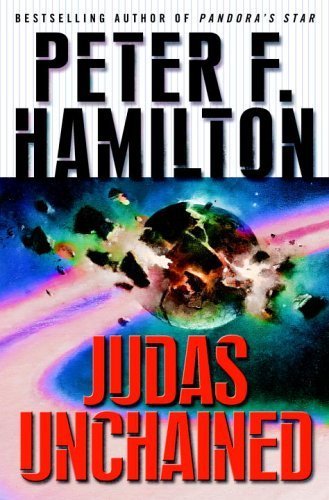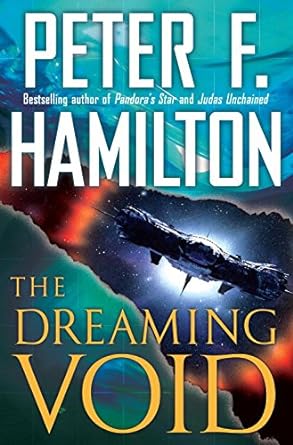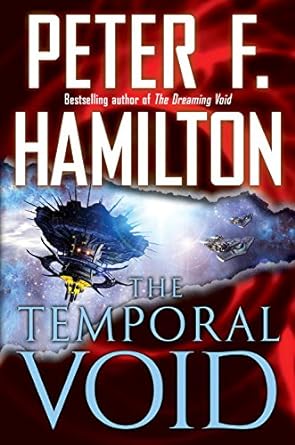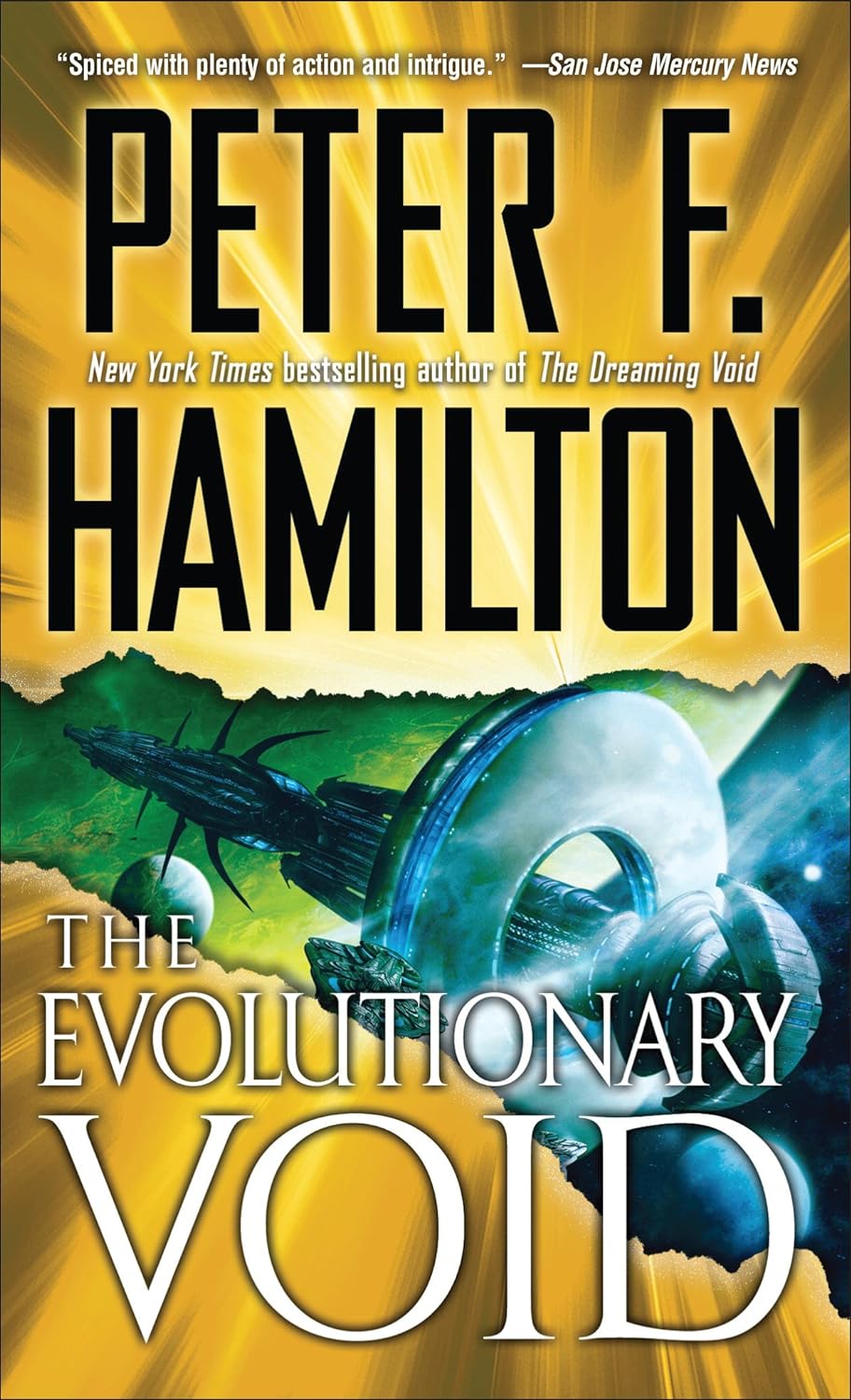Peter F. Hamilton
Below you'll find short reviews of Peter F. Hamilton's books:The Chronicle of the Fallers
The Abyss Beyond Dreams starts off The Chronicle of the Fallers, another series in Peter F. Hamilton’s Commonwealth universe. Though billed as space opera, it often reads more as urban fantasy since most of the story occurs on the planet Bienvenido inside the Void where steam engines are their most advanced technology.
Night Without Stars is the second book in The Chronicle of the Fallers. It is action packed, with great pacing, and complex characters. It is my new favorite Peter F. Hamilton book.
Commonwealth Saga
I couldn’t put Pandora’s Star down! It is a sci-fi book that reads more like a thriller. There were always new mysteries that just a few more pages promised the answers to.
The sequel to Pandora’s Star, Judas Unchained continues right where the last one left off, but with the action ramped up to 11. The various storylines and loose threads come together one by one until it’s the good guys racing against the bad guys for the fate of the universe.
The Void Trilogy
The Dreaming Void, by Peter F. Hamilton, is set in the same universe as the Commonwealth Saga, but saying that isn’t quite strong enough: it is really a sequel. You pretty much must read the Commonwealth Saga first because half of the characters return, and every major plot point from the earlier books is spoiled in this one.
The second book in Hamilton’s The Void Trilogy, The Temporal Void, continues to advance the story, but like many middle books in a trilogy, it does so slowly. Much of this slowness is due to multiple, massive, 200-page chapters following Edeard in the Void.
The final book in Hamilton’s The Void Trilogy, The Evolutionary Void, wraps up the series well, but a little too quickly. All the characters and storylines arrive where they’re needed and then the story is over.
